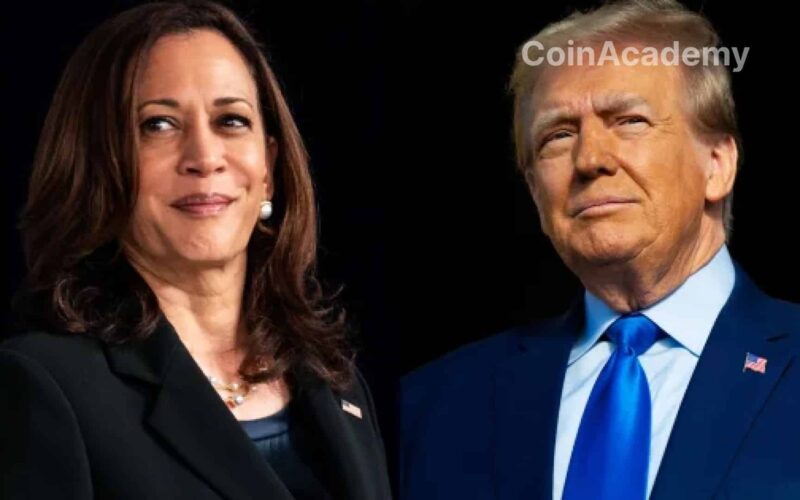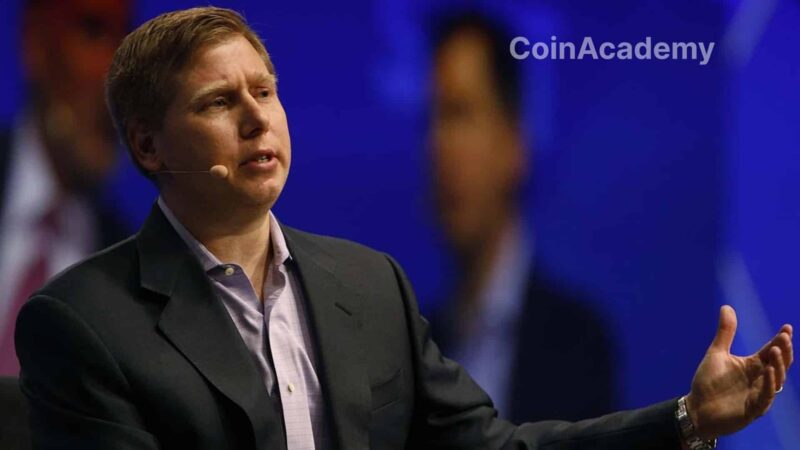Decentralized Prediction Platforms like Polymarket Gain Importance in Political Projections
Decentralized prediction platforms based on blockchain, such as Polymarket, are playing an increasingly significant role in measuring political probabilities and providing an alternative to traditional surveys.
These platforms allow users to bet on future outcomes, creating a market where probabilities fluctuate based on participants’ buying and selling. A recent example of the impact of these markets is the surge in Donald Trump’s chances in the presidential race against Kamala Harris.
The Influence of a Mysterious Trader on Polymarket
Over the past few days, the gap between Donald Trump and Kamala Harris has widened on Polymarket, reaching a 13% difference in favor of Trump. This sudden change can largely be attributed to the activity of a mysterious trader known as Fredi9999, who has accumulated millions of shares favoring Trump’s victory. According to Polymarket data, Fredi9999 owned approximately 7 million shares at the beginning of the week, but this number rapidly climbed to nearly 11 million after massive share purchases, including hundreds of thousands of dollars in just one hour.
This anonymous trader has had a significant impact on the probabilities displayed by the platform, drawing the attention of analysts and observers of the American political scene. Polymarket, with its current total betting volume surpassing $1.6 billion for this election, reflects the growing importance of these markets in electoral dynamics analysis. By comparison, during the 2020 presidential election, Polymarket generated a total betting volume of less than $11 million, highlighting the magnitude of the growth of these markets in just four years.
The Impact of Influential Figures like Elon Musk
The recent change in probabilities on Polymarket can also be attributed to influential figures like Elon Musk. Earlier this week, the Tesla CEO took to social media to assert that Polymarket offers better accuracy than traditional surveys. At that time, Trump’s chances were at 50.6%, compared to 48.4% for Harris. This intervention further legitimized the platform among the public and investors, drawing increased attention to blockchain-based prediction markets.
Elon Musk behind the Pseudonym Fredi9999?
Unsurprisingly, the Polymarket community quickly began searching for the identity of the infamous Fredi9999, with some users even speculating that it could be Elon Musk or one of his acquaintances.
Indeed, there are several elements linking Musk to Fredi, including their allegiance to Trump, as Musk’s support for Trump coincided with Fredi9999’s initial bets. Additionally, both individuals share a preference for the state of Pennsylvania and, of course, impressive financial resources.
Polymarket: An Expanding Market
Beyond the presidential election, Polymarket is experiencing notable growth in various sectors. In September, the platform reached record levels in terms of monthly trading volume, new markets, active traders, and cumulative transaction volume. The recent $45 million funding round led by Peter Thiel’s Founders Fund demonstrates that institutional investors see a promising future for these decentralized prediction markets.
Among the participants in this funding, important names such as Vitalik Buterin, co-founder of Ethereum, and Kevin Hartz, co-founder of Eventbrite, highlight the growing interest in these platforms at the intersection of blockchain technologies and predictive analysis.
An Alternative Model to Traditional Surveys
The increasing popularity of prediction markets like Polymarket illustrates a shift in how people approach the analysis of future events, specifically in the political realm. Unlike traditional surveys, which can be subject to biases or methodological errors, platforms like Polymarket rely on users’ actual financial actions, with each individual betting their own money on the outcome they deem most likely.
With the involvement of actors like Fredi9999 and the attention of influencers like Elon Musk, Polymarket and other decentralized prediction markets have become significant players in measuring the probabilities of the US presidential election. This new form of predictive betting is gradually emerging as a complement, or even an alternative, to traditional methods of election forecasting, and could redefine how elections are followed and analyzed in the future.




